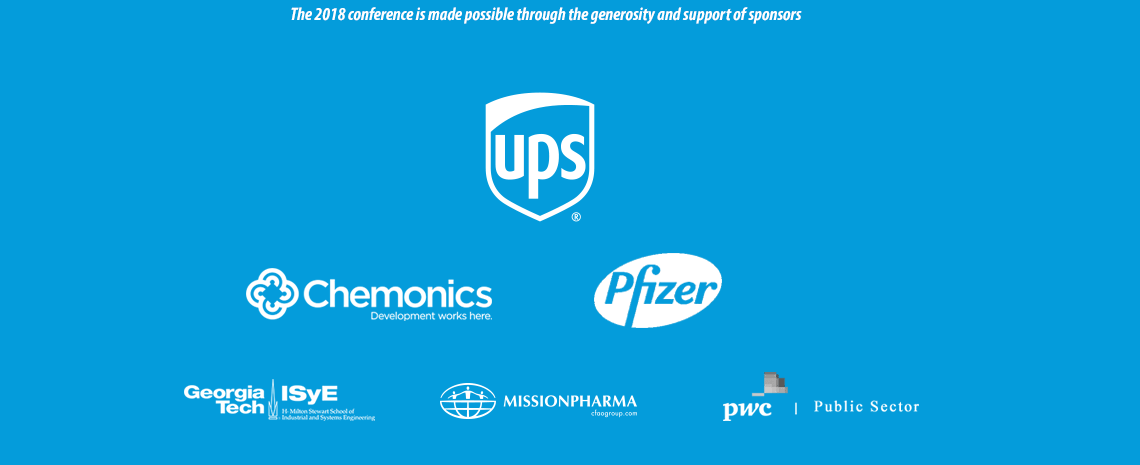Keynote and Panels
 Download a PDF version of Welcome Address and Keynote
Download a PDF version of Welcome Address and Keynote
Welcome Address
- Caroline Faraj, Board Member, International Humanitarian City, Dubai; VP Arabic Services, CNN
Keynote
-
Jagan Chapagain, Under-Secretary-General for Programmes and Operation, International Federation of Red Cross and Red Crescent Societies (IFRC)
Panel 1: Global Strategies: Planning and Responding to Public Health Emergencies
-
Jagan Chapagain, Under-Secretary-General for Programmes and Operation, International Federation of Red Cross and Red Crescent Societies (IFRC)
-
Chibuzo Eneh, Assistant Director and Supply Chain & Logistics Unit Lead in Health Emergency Preparedness & Response Directorate, National Center for Disease Control Nigeria
-
Nathalie Imbault, Global Development Programme Manager, CEPI: Coalition for Epidemic Preparedness Innovations, London
-
Dr. Georges Ki-Zerbo, Head of Country Office & Representative to Guinea-Conakry, World Health Organization (WHO) African Region
-
Dr. Julie Swann, Department Head & Professor, Department of Industrial and Systems Engineering, NC State University, Moderator
![]() Download a PDF version of Panel 1
Download a PDF version of Panel 1
Panel 2: Public Health System Strengthening
Health systems provide ongoing care for a wide range of acute and chronic diseases while trying to promote wellness in the population. Logistics challenges may include limited infrastructure, difficult last mile delivery, and low resource availability. Panelists will share knowledge and provoke questions about work to move the needle in strengthening health systems.
-
Dr. Maha Barakat, Director General, Abu Dhabi Health Authority
-
Dr. Abdourahmane Diallo, Minister of Health, Guinea
-
Azuka Okeke, Regional Director & Country Lead (Nigeria), Africa Resource Centre
-
Dr. Rajata Rajatanavin, Former Minister of Public Health, Thailand & Former President of Mahidol University
-
Dr. Pinar Keskinocak, Professor & William W. George Chair, School of Industrial & Systems Engineering, Georgia Tech, Moderator
![]() Download a PDF version of Panel 2
Download a PDF version of Panel 2
Day 2 Reflections
![]() Download a PDF version of the Day 2 Morning Reflections
Download a PDF version of the Day 2 Morning Reflections
Panel 3: Technology & Data Innovation for Collaboration & Coordination across Health & Humanitarian Sectors
Information technology (IT) in the health and humanitarian sector is a constantly changing landscape--new and improved tools emerge before you have even had a chance to deploy the older versions. As this sector continues to grow and evolve, so too do best practices and standards. At the same time, countries are developing their own set of data and IT requirements and updating them at an equally fast pace. As health and humanitarian supply chain practitioners, we look to thought leaders to point us to the most important topics for our field now, and in the future. This panel consists of several “thought leaders” who play a key role in developing innovative tools that help manage health and humanitarian supply chains. The purpose of the panel discussion is to highlight topics relevant to supply chain practitioners responsible for incorporating IT tools into their projects and programs. Their experiences in the field of information technology for the health and humanitarian sector will be discussed, focusing on best practices, standardization, and meeting country requirements.
-
Dr. Dhruv Boddupalli, Director of Healthcare Partnerships, Zipline
-
Charan Malemarpuram, Director of Engineering, Logistimo
-
Julie Rochon, Impact Business Development Director, Optel Group
-
Sidarth Rupani, Regional Director, Africa, Middle East & India Public Health Sector, Llamasoft
-
Tenly Snow, OpenLMIS Community Manager
-
Dr. Jarrod Goentzel, Director, MIT Humanitarian Response Lab, Moderator
Sorry, no download available
Panel 4: Refugee Crisis: Facing Logistics Challenges
The last decade has seen an unprecedented number of refugees around the world. Today there are over 22 million refugees with three countries alone (e.g., Syria, Afghanistan, and South Sudan) accounting for about 55% of the total number. Developing nations in the Middle East (e.g., Turkey, Pakistan, Lebanon) and Africa (e.g., Uganda, Ethiopia) host most of the refugee populations. Governments, NGOs, and humanitarian organizations are developing strategies for implementing large-scale solutions that are collaborative, robust, sustainable, and adequately meet beneficiary needs. Principle questions the panel will address include: (i) What are the challenges in implementing programs that can accommodate the current number of refugees and how are these challenges addressed? (ii) What is the role of innovative solutions such as Cash-Based Interventions? (iii) Are there integrated supply chain planning solutions among agencies?
-
Rex Alamban, Head of Sub-Office, International Organization for Migration (IOM)
-
Houssam Chahin, Head of Private Sector Partnerships, MENA & UNHRC
-
Simon Conesa, Global Logistics Advisor, Norwegian Refugee Council
-
Sarah Rich, Senior Advisor for Sexual and Reproductive Health, Women's Refugee Commission
-
Dr. Paulo Goncalves, Professor, Director of the Master in Humanitarian Logistics and Management (MASHLM), Universitta della Svizzera Italiana, Moderator
About the Conference Series
The Health & Humanitarian Conference series is organized each year by the Center for Health & Humanitarian Systems (CHHS) at Georgia Tech in partnership with INSEAD, MIT, and Northeastern University, with generous support from corporate and other organizational sponsors.
Stay Connected on:
Contact
- humlogconf (@) gatech.edu
- 755 Ferst Drive, Atlanta, GA 30332









